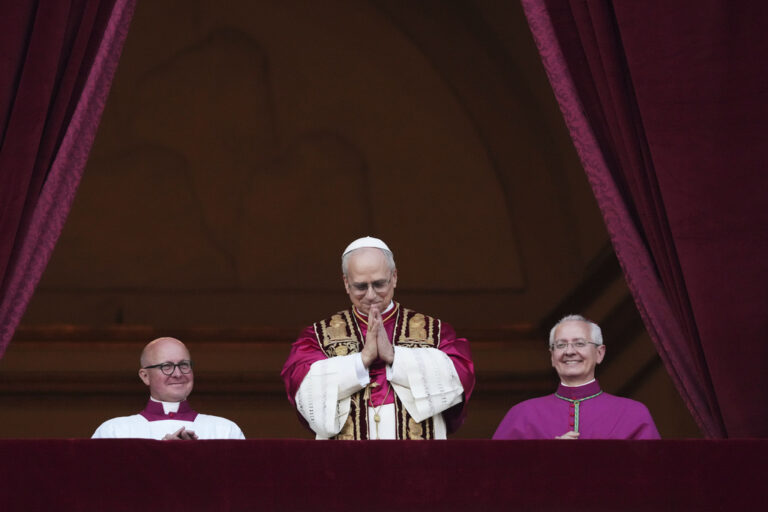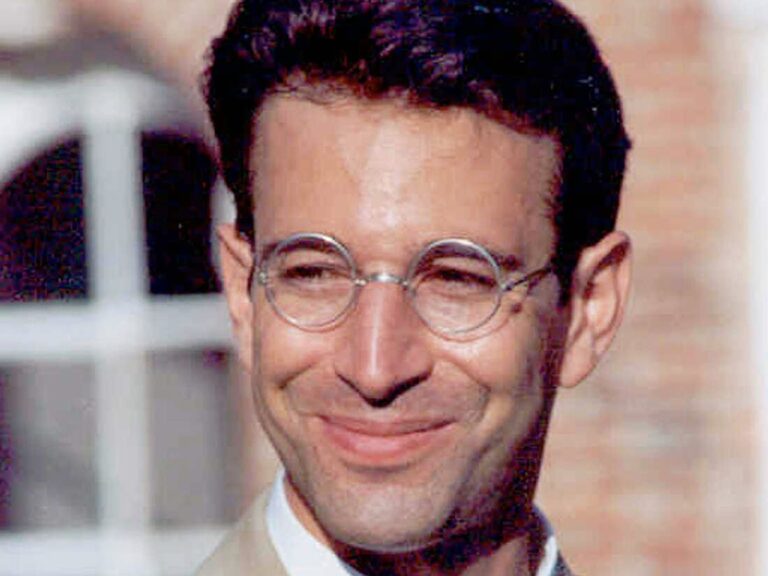As I sit down to write this on Thursday night, shortly after the Parnasa session at the Agudah convention concluded, I find myself grappling with a deep and nuanced question raised by Naftali Horowitz’s heartfelt plea. For those who missed it, he passionately implored us to be mindful of those with less means than ourselves. His message was clear and well-meaning: our actions and spending habits should take into account the potential hurt they may cause to others who struggle financially.
While his sentiment is admirable, I believe there is a critical point that deserves more attention—one that wasn’t fully explored. Why is the burden to “tone down” placed almost exclusively on those who have been blessed with material success? Why is the responsibility not shared more evenly, with everyone encouraged to approach their financial reality with perspective and self-awareness?
To be clear, I am not, chas v’shalom, questioning the wisdom of the rabbonim or the sources Naftali quoted. But I do want to ask: why is the onus seemingly placed on the “haves” to hide their blessings rather than on everyone to recognize that there will always be disparities in financial means? Shouldn’t we teach that life inherently comes with differences—that some will have more, and others less?
The impression I took from the session was one that felt uncomfortably close to advocating for a type of communal “equality” that doesn’t seem to align with the Torah’s view of individual blessings. Are we moving toward a mindset where the goal is for everyone to appear the same, lest someone feel slighted? If so, I fear we are stepping into a philosophy that is more aligned with socialism or communism than the nuanced balance that Yiddishkeit promotes.
Let’s apply this line of thinking to a common scenario. Suppose I were to say, “I think it’s improper for a donor’s name to be displayed on a building because it makes me feel bad that I can’t afford to do the same.” Most people would dismiss that as irrational. Why, then, is it acceptable to tell someone they shouldn’t go on a vacation they can afford or throw a simcha that reflects their means?
This isn’t to say that the “haves” bear no responsibility. On the contrary, I believe there is room for introspection and adjustment on both sides. The “haves” should consider scaling back excessive displays of wealth—toning down what has become the “standard” Kiddush, vort, or wedding, for example. At the same time, the “have-nots” need to work on embracing their own financial reality without shame. It’s okay to host a simcha within your means, even if it looks different from someone else’s. There is no reason to feel less worthy because of it.
The reality is that this issue runs deeper than money. In another session at the convention, there was a discussion about dealing with struggling children. Perhaps these two conversations should have been combined, because the pressures we are creating—both for ourselves and our children—are deeply intertwined. By telling children that they “deserve” to have whatever others have, we are inadvertently teaching them that their worth is tied to material equality. This mindset can be damaging, planting seeds of entitlement and dissatisfaction that grow over time.
This isn’t just a problem for “this generation,” nor is it a symptom of “young money,” as some might argue. It is a Klal Yisrael problem—one that affects all of us, regardless of age, financial standing, or stage in life. And it will require a concerted effort from everyone to create meaningful change.
Ultimately, we must strike a balance. The “haves” should take care not to flaunt their wealth in ways that create undue strain on communal norms. The “have-nots” should work to cultivate a healthy perspective, recognizing that life’s blessings come in different forms and that no one is diminished by having less. Most importantly, we should teach our children—and remind ourselves—that our value is not determined by what we have, but by who we are.
Sincerely,
C.J.
The views expressed in this letter do not necessarily reflect those of YWN. Have an opinion you would like to share? Send it to us for review.












17 Responses
The easiest solution is to be a loner like I am. Be asocial. Keep to yourself. May be depressing sometimes but keeps the envy of others to a minimum. I am married but do not socialize much with others.
It is true that each class has a responsibility. However, that should not diminish the responsibility of the “haves” in that they should not flaunt their wealth. You want to enjoy your wealth? Fine. Why not do it in the private realm and not in the public realm? Yes, when you make a fancy simcha or kidush , it is very hard to not automatically put pressure on the entire system. The “have not” has his obligation, but do not use that as an excuse to the wealthy to be considerate of others.
Looks like the letter writer BH is well off and never felt the pain and humiliation of the Have Nots.
I’m giving him a brocha that he should never feel that pain and humiliation…
People on the well off side don’t really understand how difficult and painful it is.
The Ten Commandments focuses on the “have not.” I really don’t like that term, because a healthy and accurate perspective would cultivate a mindset that we all are “haves,” perhaps in less measurable ways. But this aside, when we feel we “have not,” which we all as humans inevitably feel at time, the onus is absolutely on us – לא תחמד. This is not a rabbinic statement or an obscure פסוק, but the actual ten commandments. Celebrate what others have, focus on your blessings, be gracious, and move on.
You start by saying that the speaker spoke with torah authority and torah sources. Then you decide to disagree and put forward your own view on what the torah hashkafa is. Do you have any sources to back up your opinion? Tznius is a bedrock principle of the torah, can you explain how your opinions fit with torah hashkafa?
I don’t think “have nots” have much to be modest with, what exactly should we have them tone down? It can only be one side. It’s a sad truth that many especially since the covid inflation have been struggling financially and it doesn’t seem to be slowing down. The higher the struggles the more it puts spotlight on those who do have wealth, which is a very high number. There’s no shortage of Jews that do have an immense amount of money. But our religion does promote modesty with spending and extravagance, as well as gaiva being the worst character trait on the list. Open any Jewish paper and all you’ll see is ads for luxury food, luxury vacations, and Luxury Apartments. It does seem that Society caters to those who could afford those things and that’s a shame. People are constantly reminded what they don’t have and it hurts, because many of these people can’t afford just to have their kids go to school and the reading advertisements for apartments in yerushalayim that no israeli could afford. Why can’t anyone help with a tuition fund? Because the bottom line is nobody cares about that, we care more about the party planner. The convention is just highlighting the terrible priorities that we have, I salute anyone that gives the proper amount of charity in ratio to his income. The rest is yours to enjoy
I love it.
While I’m not questioning….
Then goes on to state the exact opposite.
If you really listened to his speech you’d have your answers.
He quoted a chafetz chaim that clearly, cogently, and unequivocally explained why it’s the responsibility of the rich, and how terrible it is if they shrink that responsibility.
You want to argue and go head to head with the chafetz chaim? Your own your own. Don’t expect most of klal yisroel to follow you.
As to your building donation question?
It’s a teshuvis harashba. Mefarsimin osay mitzvos.
Unfortunately one doesn’t need to worry about those who can’t afford it, striving to get their name in a yeshiva building.
And if they do, well then that’s great so putting the name on is a win win
It says Moshe Rabeinu became rich because Hashem let him keep the pieces of the Luchos that he broke off. The question is how did that make him rich, who could he sell it to. He became rich from the Yiddishe customers?
the example regarding the name on the building is not a day to day expense.
the tone-down request is regarding the things that make people feel like a neb if they do not play-along
I as an extremely wealthy yid keep a very low profile. I was a multi millionaire in my early twenties but by nature shy. I hardly socialize and the people I picked to talk to were basicly the nebech types. I would treat some of them to expensive restaurants but I stayed away from where the successful people go for weekends. How was I able to run my business if by nature I am shy and not commanding. I hired people who were not shy and paid them well. I enjoy hearing people boast about money and they have no clue that I’m in the hundreds of millions. I made a lot of my fast money in life insurance as well as real estate. Of course it wasn’t my brain as I am a pretty average guy who got kicked out of school. My recommendation to people is to be careful with your money. Support your kids through kollel but let them not know your true worth. Buy them normal homes that don’t create envy. Although I live in Bp and live in a normal house I have a high mansion out of nyc where I go to relax but it cannot be seen by the public as you have to drive deep into the property hidden by trees. The only one who knows about it is my wife and not even my kids. I don’t want them talking to friends on my wealth. I never put my name on buildings or dinners but I secretly through in thousands in cash when no one is looking. I know the honor at dinners for the rich is all fake. I respect a handful of rabbis who are really giants and mostly unknown. I slip money into their seforim or coats when they are not looking. I know most people would say I’m crazy but since I don’t socialize much they don’t even know of me. People ask me what I do. I tell them I am trying to be a full time jew. Then they stop asking and think I’m probably an unemployed poor guy. It gives me great pleasure to hide my wealth. But don’t your tenants or costumers know you and the answer is they don’t as I have a staff that does my work. I hire people who are not known to socialize in circles where I have relatives or acquaintances. Mostly I get foreigners or out of towners to work in my various investments. Enough for now.
From the Gemara it would seem that even back in those days, rich people (and sometimes even the greatest Rabbis) made lavish Simchas.
One Rav said that everybody individually needs to work on their Middos. Of a person can’t afford to make a lavish Simcha or event, but feels pressure because he doesn’t want to feel like a loser, then he should learn Mussar or get help. Honestly…. Nobody cares. If you have a 5 man band by your wedding but need make stressful credit card payments for the next 2 years because you wanted to impress 6 people so you should know… I can almost guarantee…. Those 6 people don’t give you a dollar. They never have. They never will. And they really reallly don’t care.
If a person has money and can afford to spend so he has to ask himself…. Do I need this? What’s the message I’m showing my kids? What’s the priorities?
There were some family members sitting a meal and one mentioned that a new family moved into the neighborhood. Another family member said… yes… very nice…. The husband is very Chashuv. So anther family member asked…. What makes him so Chashuv? So the reply was…. Because he spends hours a day learning torah. It was very impressive to see what they viewed as Chashuv.
Each person has to use his own brain that HaShem gave him and apply common sense.
Just remember this…
When the rich guy makes a lavish Simcha or builds a massive house people make fun of him behind his back saying …. Look at what he needs to do to compensate for his lack of confidence …
Or because he has SPS syndrome… or because of some other issue.
When the poor guy makes a lavish party people laugh at him behind his back as well.
Bottom line is we should all find balance in life which means Avodas HaShem. Stop thinking so much about others. Learn more torah. Do more kindness and give more charity. And IYH we should be Zoche to see Mashiach quickly.
This is where I blame Agooodah for bringing up this same mind grabbing topic in their annual convention annually and never coming to a resolution or meaningful conclusion. All these Agooodists accomplish is to rile up the masses with ideas of gashmiyus and envy and senseless hate. Let us have a Moetzes that leads rather than to be led by “askanim”. Make it a true Torah learning experience. The agoooodah convention is anything but a Torah learning experience.
The glaring flaw in this letter is that displaying a nadvan’s name is in fact allowed in Halacha precisely because it will encourage others who can afford it to do so.
This shows that (1) it’s an exception to the rule of hatzne leches (spend your wealth gezunterheit, but you have no right to flaunt it) (2) it shows that showing off your good fortune does have a tangible affect on others
1) I don’t think the communism/socialism comparison is correct. The problem with communism is not the idea of equality in itself. If equality could be achieved without the tyranny, unfairness, theft, negative incentivization structure, etc. that comes along with forcing it, then it would not be such a bad thing. What makes communism evil is everything that comes along with forcing the equality, as well as the inevitable corruption that comes with it.
2) We can’t have it both ways. The fact is that the frum world DOES strongly encourage uniformity. That’s one of the main differences between the frum world and the M.O. world. Whether it’s how we dress, how we think, and what we teach our children they should strive for in terms of their futures (careers, choice of spouse, etc.). This mindset of uniformity inevitably carries over to other aspects of life. Standards are set, and then everyone is made to feel that they are expected to meet them.
My argument is that it’s not entirely the poorer person’s fault for feeling bad about not being able to keep up with the standard. Rather it is our collective fault for allowing these overly-defined standards to develop in the first place. Yes, obviously wealth disparities exist everywhere and they always will, and yes ppl need to learn to cope with their own financial reality. But – this truly is a unique problem in our community in terms of how pronounced it is – and there are very real reasons why that is. I think getting to the root of these reasons and trying to fix them is a good thing.
I grew up in a home where money was not an issue, but we never made a big deal about money. It was never about how much something cost but about how much value something had. Just because we had money doesn’t mean my parents spent it and as a result we grew up with good monetary values and unspoiled. They weren’t misers but didn’t flaunt their wealth or spend crazy money.
My friend once told me I don’t understand it ,because she was poor she always felt like she HAD to have the best of everything so people wouldn’t think she was poor. So she made her parents crazy to spend money they didn’t have to buy her clothes etc.
And it made me realize that I grew up with confidence to say, I can afford something and I’m CHOOSING not to spend on it. She was lacking that confidence. I think parents can instill in their children the same confidence, by how they have conversations about money and value.
Each person has a different test but on a general level according to our Torah Hashem makes a person wealthy because his test is in giving and a poor person his test is in receiving wasting money on unnecessary things is obviously evil because Hashem gave you that extra money for charity but at the same time a poor person that is jealous when they see the rich person wasting his money is also evil because he must have faith and thank Hashem and not question Hashem wasting money on luxuries is foolish and for foolish people that are not true to the Torah and make dumb excuses why they need things but they don’t but it’s always easy for a person to lie to himself a poor person that feels pain when looking at foolish people is also foolish because what is he jealous of? He wishes he can also be foolish? Hashem gives each person the test that they need for there soul so even if they aren’t jealous they should never be ashamed a per That goes against the Torah he should be ashamed a person that tried to follow the to poor or wealthy have nothing to be ashamed of but this is all obvious stuff don’t know why we have to talk about it
I think the writer misses a key point about the have nots. We all grow up in an interactive society. That means we are all affected. Now why the rich man more than the poor man?
1) he naturally has a much greater capability to flaunt and when he does it makes much more of a splash.
2) Even if as an adult we the “poor men” work on not being jealous and not needing to live up the johns’s, what about our children? We can impart any message we like. Children are still effected by surroundings. If their friends in school etc have something and thats the style its hard to just say no even with the best chinuch.
3) The rich standards set a certain tone by us all that makes things hard to ignore. For example, its easy to say don’t make a vort and just a l’chaim but that’s just not done anymore. No kalah wants to be a “neb” By the way the newest standard is a party planner friday night by sheva brochos. Sure we can say no but we really can’t. Its only the rich that can slow these kinds of things down and not the “poor”.
This doesn’t mean that the poor shouldn’t work on ourselves too. But the rcih have a greater impact and their actions set the tone more.